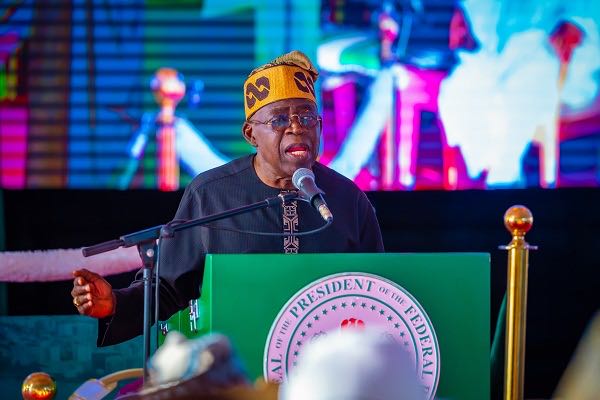After the first full year in office and well into the second year of the Bola Ahmed Tinubu presidency, some of its most defining features are becoming clearer. And the signs from these features dictate the need for caution as well as change in intent and direction of governance. This is for the simple reason that much of the expected outcomes of policy initiatives are not materializing as intended, courtesy of unrealistic presumptions and projections. Put in more specific terms, perhaps unknown to the government, Nigerians are literally dying in droves across the country, due to the complement of privations such as the scarcity of basic food stuff, non availability of basic healthcare, out of reach housing and the rather intractable state of insecurity.
With food shortages spreading across the country and prices shooting beyond the regular budgets, the citizenry have been exposed to life threatening conditions which precede anomic tendencies. Given the cliché that a hungry man is an angry man, the implications of mass hunger across the country should be clear to the administration. Yet this is where the country is at the present, even as such seems pitiably lost to the administration – that is if its regime of policies and responses are anything to go by.
Judging by the various narratives in the ongoing national conversation on the state of affairs, there are at least two thrusts. While one highlights the various faces of the crises and suffers the denigration of being alarmist, the other downplays the gravity of the situation as business as usual.
Yet for all practical intents and purposes, the much feared evil days have arrived the country and are taking the toll heavily on the society. Things have gone full circle, as one crisis connects with the other, and all of them reinforce each other.
That is why the looming nationwide protest planned for August 1-10 2024, even if the does not hold, constitutes a timely marker for the government to appreciate the state of affairs across the country. Put in proper context, Nigerians have been pushed to the end of their wits, with respect to coping with the regime of privations. This is even as among the various privations, the most acute is that of food.
In the life of any nation, the present state of affairs in Nigeria comes up at one time or the other and tests the quality of leadership in office at a particular time. In the context of a pragmatic leadership, the situation is not irredeemable, as it constitutes the outcome of previous policy planning and execution errors, which in the same vein can be corrected with better planning and effective execution of designated remedistion. Thus the situation offers the Bola Tinubu administration the defining challenge of stepping up to the task of changing the narrative. This is what it has yet to achieve given the prevailing state of affairs.
Interestingly, President Bola Tinubu was elected on the strength of great expectations which were in turn spawned by tales of his ‘stellar’ performance as governor of Lagos State between 1999 and 2007. However, except for the die-hards in his sing-song crowd, the first year in office as president is yet to mirror the Lagos ‘miracle’. That is why the administration needs to remain on the drawing board, as the state of the country is still far from the ideals of hIs renewed hope agenda.
For instance, a dominant thrust of the pro- Bola Tinubu propaganda which even this PENPOINT column had subscribed to earlier, is that courtesy of the pallid state of affairs he inherited from the preceding administration, Nigerians need to accommodate reforms which entail passing through the tunnel of adversity to emerge in the promised bliss of an Eldorado. But the question thrown up by this mindset is that with Nigerians already dying literally of sundry, avoidable privations, how many more will die before the country escapes from the morass?
Much as the president had offered the country the benefit of his political vision for changing its narrative through his renewed hope agenda, he ordinarily deserves the concession of trusting his judgment. Yet the fact remains that the content of and expectations from his political vision as captured in the renewed hope agenda constitutes at best a declaration of intents and promises, whose fulfillment will define their merit.
To what extent then can Nigerians across the country trust the Tinubu administration given the twists and turns in its enterprise? This is where the policy initiatives and the processes of governance by the Tinubu administration, as inspired by the renewed hope agenda, need to be juxtaposed against the contemporary socio economic challenges facing the country.
In a world where the dividends of any enterprise especially governance trump the efforts so deployed, the appraisal of the Tinubu administration lies on what dividends Nigerians are getting at any point in time. For now, much of what Nigerians are seeing are the pangs of hunger, deaths from insecurity and starvation, among other odious tendencies.
Hence the question like how many more Nigerians will die before the Tinubu reforms manifest, lies on the lips of not a few Nigerians, morbid, as it may be. .

 Join Daily Trust WhatsApp Community For Quick Access To News and Happenings Around You.
Join Daily Trust WhatsApp Community For Quick Access To News and Happenings Around You.


